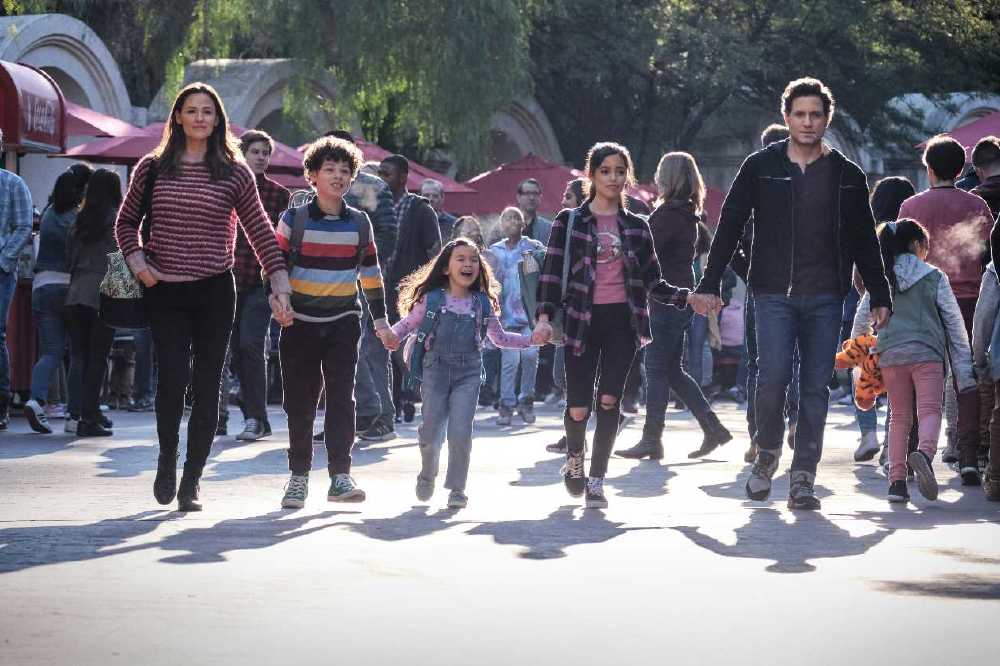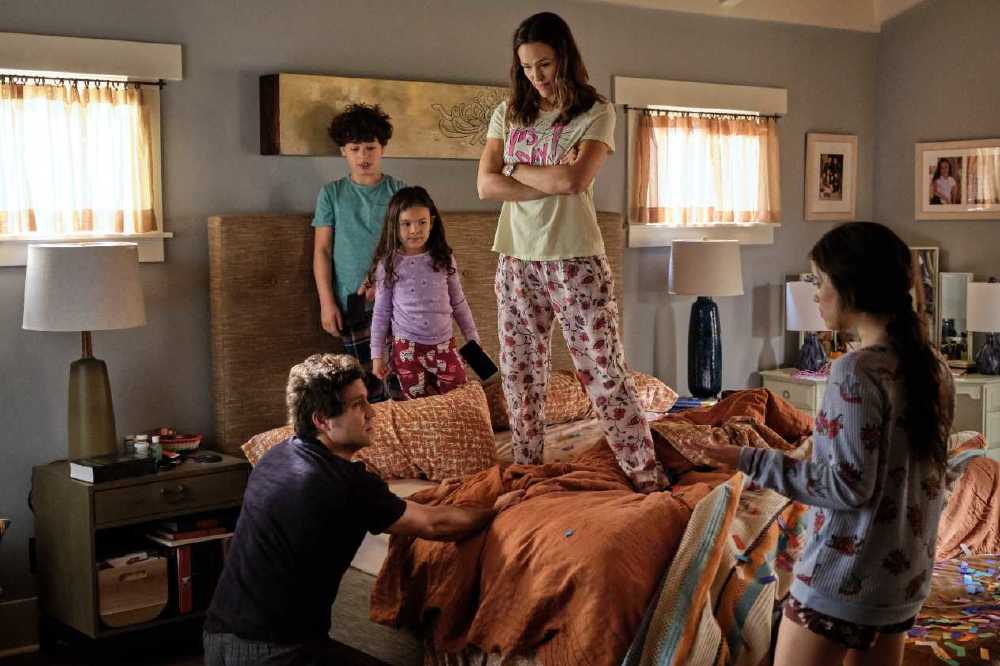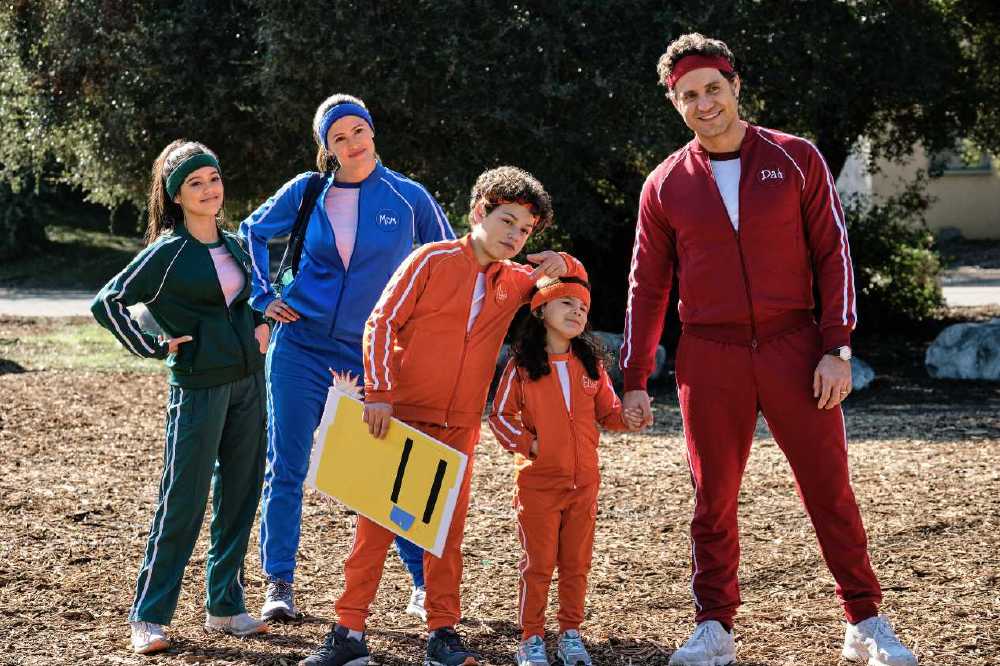Friday 12th March marks International Yes Day, the one day a year when parents/guardians say YES! to their kids and for 24 hours, the kids make the rules. Whether it’s staying up late, having pizza for breakfast or building a den in the living room, the answer is YES! The concept forms the inspiration behind the new film YES DAY, which is now available on Netflix. To celebrate the release, we caught up with Dr Hazel Harrison (Clinical Psychologist) to ask her advice about a Yes Day.

Yes Day Credit: Netflix
What benefits can a Yes Day have for parents of young families? The last year has involved a lot of 'no' days for children.
One of the things that is really interesting about the concept of a Yes Day, especially right now, is that the last year has involved a lot of no days for children and adults alike, due to COVID restrictions. It’s tough and monotonous being in lockdown for so long and there’s something fun about the possibility of having a Yes Day that involves playfulness and curiosity, trying new things together and being willing to try a new challenge - or whatever a Yes Day looks like for you. Taking part in a Yes Day challenge has the potential to change things up a bit, and we know that newness and novelty can be great ways of sparking a different emotions and improving our daily wellbeing.
How can a Yes Day impact on the mental health of parents and children alike?
When planning a Yes Day, it’s helpful to think about the sorts of things that might generate fun, joy and positivity. One of the things I find especially interesting about this concept is that the children get to be in charge and suggest the things that they might like to do. It may be something quite simple like having cereal for dinner, but it just means that you have to try something a little bit different, prioritizing and making space for fun. There might be for some parents, something quite lovely about not having to dictate all the things that they do on the Yes Day and allowing the children to take control and ownership over it, so I expect that could benefit parents’ mental health by just allowing for fun. It doesn't necessarily mean that you have to love it all and have to have forced fun, but it's the potential to bring about positive emotions.
Yes Days certainly have the potential to escalate so how can parents keep a little bit of control to stop the day descending into chaos?
One of the things we know is really helpful for children's wellbeing is having some boundaries in place and we always say ‘safety first’. Before we do anything else, we want to make sure that children feel that their physical and mental health is being looked after and everyone else is safe too, so when I was trying to imagine what a Yes Day might look like in practice, I was thinking about how important it would be to put some boundaries in and to agree together what a Yes Day looks like for your family. It’s important to make it clear that a Yes Day isn't about materialistic things, as children might be likely to automatically look at this as an opportunity to ask for things that cost money – instead it's about spending time together and doing things in a different way and thinking outside of the box. A Yes Day allows space to be more flexible and adaptable as parents than we may be on other days, letting things roll a little bit further than we normally would, because we're allowing that curiosity to evolve as part of the whole ethos.

How important do you think it is that books and movies portray this kind of day for families?
For me it's about the concept of being willing to try things differently as a family that feels important. Having a chance to break the patterns a little bit and allowing your children to have a bit more of an opportunity to feel that they have ownership over something and that they're making the decisions. These are all things that we know help children to develop a strong sense of themselves and their identity. Adults to help shape and scaffold that, but a Yes Day is an opportunity for kids to stretch themselves a little bit too.
What is the best way to prepare for a Yes Day with your family?
It’s important to make it clear to people that you don't have to wait until the day itself to plan what you're doing, so actually starting the conversation with your children earlier and talking through what their ideal Yes Day might look like can be sensible. Planning beforehand also gives children time to think beyond their first initial idea and allow things to develop. The first thing that they say might not actually be the thing that ends up being most fun, most creative, or the thing that brings everyone together. It might start as ‘I want to sleep in the lounge’ and that develops into ‘let's make a den and everyone camp out in the lounge together’. Having that chance to plan and look forward to the day is a big part of the fun!
What kind of age range would say is most appropriate for a Yes Day?
Although we’ve been focussing on children and families participating in a Yes Day, Yes Day’s are for everyone, families, singles, couples who don’t have children, older people etc. If you're thinking about this concept from an adult perspective, one of the things that's interesting to consider is that we all have this inner critic in our mind that can pipe up when we're thinking about trying something new and tell us we’re going to fail. Maybe as adults, a Yes Day is an opportunity to try something you’ve always wanted to do without pressure for it to be successful. There's a beautiful part for adults too, which is about self-compassion and the possibility of allowing yourself to listen to what you need in the moment. That might simply be a day in your pyjamas!
Is a Yes Day something that can be done more than once?
Absolutely. I’m aware there are a lot of people who take part in Yes Day’s as an annual tradition including Jennifer Garner who stars in the film. Jennifer has taken part in Yes Day’s with her children for the past six years and I can imagine that doing it annually would be fun, as obviously as each year goes on families might plan even further ahead, becoming more of a date that they look forward to and build upon which is really lovely.

Is it appropriate for parents to use a Yes Day as a form of reward for good behaviour?
That’s an interesting one as yes, we do all need some incentives and it's probably helpful for some people to use it as something that you're working towards. What we know about using reward to incentivize behaviour is that it's really important that things don't get taken away, as that can be really demotivating. If as a family you decide you're going to make the Yes Day something that happens after certain behaviours or activities have been met, then I would suggest it's probably better not to make it a specific day so that there's an opportunity to get there eventually.
Why is a Yes Day needed more now in the challenging times we live in?
Living through a pandemic has meant a lot of restrictions in our lives, and for many, a great deal of challenge, loss and disconnection from others. Whilst nothing can take away from the struggles many people are still experiencing, making space in our lives for lightness, fun and connection may well help to build our strength to keep facing the challenges.
YES DAY is available from Friday 12 March on Netflix #YESDAYchallenge
Dr Hazel Harrison is a Clinical Psychologist with a mission to bring psychology out of the clinical and into everyday life. You can connect with Hazel @thinkavellana or www.thinkavellana.com
Tagged in Jennifer Garner Netflix

